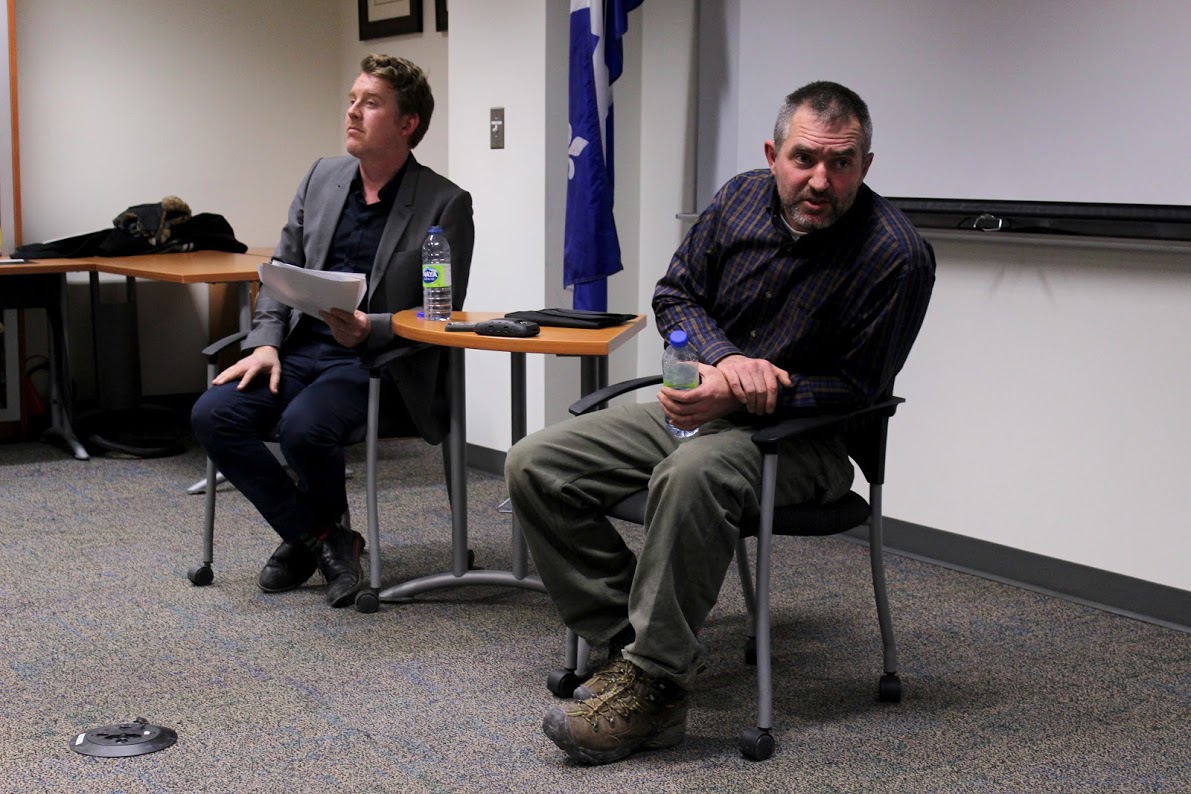C.J. Chivers visits Concordia, discusses his experience
Although New York Times war correspondent C.J. Chivers’ time as a U.S. Marine Corps officer prepared him physically for working in war-torn areas, the mental strain was beyond what he could handle. “My mind broke before my body did,” Chivers said.

The Montreal Institute for Genocide and Human Rights Studies (MIGS) hosted a discussion with Chivers in the Hall building on Jan. 20. There, he spoke about his experiences reporting in Iraq, Libya, Syria and Moscow. Chivers’ investigations in these countries focused on politics, warfare and human rights.
When MIGS Senior Deputy Director Kyle Matthews asked Chivers about his experience working in war stricken countries, he explained that he has to filter what he can take in while in the field. “You do have to turn yourself off,” Chivers said, speaking about the issues he dealt with mentally as a war correspondent.
Chivers also addressed Daesh, an ongoing fear of many journalists in the Middle East. “[Daesh] makes us think the world is more dangerous than it is,” he said. Chivers spoke about how the group uses social media to overstate the panic and war in the region. He acknowledged that he does not believe a lot of the reporting done on Daesh is accurate, leading him to carefully choose his sources on the subject.
Chivers said that he believes the power of Daesh will decrease with time. He does not believe that the militant group will be erased, however, he believes it will not have the reign it currently does.
Chivers also spoke about worrying for his safety, saying that he did not travel openly in Iraq for fear of being kidnapped. “[We did] limited bursts of work,” Chivers said, citing early mornings as the time safest for him and the team he was travelling with.
Safety is an obstacle and struggle that Chivers constantly faced working in war torn areas. Chivers said the risk was not only difficult for him to process, but his family also suffered while he was on assignment.
A father of five kids, Chiver said that reporting in these locations caused his family to worry about his well-being. In consideration of this, he decided to end reporting in dangerous countries. Despite the emotional battles he faced and the hearing damage he suffered, Chivers said it was a small price to pay in a warzone. “If they miss you by a mile, miss you by a clip—take it. They missed you,” he said.



